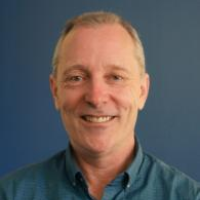Marie Story is one of three teachers who won an NCSE scholarship to raft the Grand Canyon with our own Steve Newton. She sent us a wonderful essay about her experience. I’m going to share some excerpts from her essay in a bit, but there is so much more about Story I’d like to share with you. I was able to chat with her while she was driving with her family to Idaho to get a better view of the eclipse. That tells you how dedicated she is to truly experiencing the world around her, and it provides insight into what makes her such a good teacher. She is always looking for ways to turn experience into teaching.
Story has the mind of a scientist. She is a careful observer, always looking for connections in the world around her. She sees things most people would not notice, and she is always looking for ways to integrate her insights into her teaching. You can hear this when she describes her trip down the Grand Canyon, or even a visit to the dentist. Here is an excerpt from her essay that illustrates how she can take simple observations and turn them into valuable lessons:
I grind my teeth in my sleep. As a result, I had to go to the dentist the other day to get an attractive mouth guard to protect my pearly whites. When I saw the mold they took of my mouth, I asked if I could keep it. After some weird looks, I explained that I am a science teacher, and they smiled and nodded, because after all, everyone knows the science teacher struggle. Science teachers struggle with the ability to be present in an experience; because they are always looking for making connections in the real world that they can take back to their classroom. It doesn’t matter if we are in the dentist’s office, meeting new people, or even on our honeymoon, our brains are looking for concrete examples that we can scaffold into our abstract lessons for our students.
Another thing I realized from talking with Story is how cognizant she is of how her students learn, and how concerned she is to how to craft their learning through hands-on experiences. She currently teaches eighth-grade physical science, and though climate change is not explicitly in the physical sciences curriculum where she teaches, where there’s a will, there’s a way. She plans to seize the opportunity to teach about climate change when she covers light waves and energy. Here is another excerpt from her essay that shows where this spark of insight may have come from.
In the Grand Canyon, there was an incredible amount of phenomena that I recorded to bring back to my classroom. Perhaps my favorite example of observable phenomena that I saw in the Grand Canyon was when we reached the Little Colorado. As we rounded the corner away from the Colorado River, the deep green water that we had become so accustomed to became a beautiful powder blue, as if from a movie. I would show a video as I explained this, allowing my students a glimpse into this incredible paradise. And then I would stop talking, because there would be 15 hands in the air. It would start off with, “Why was the water blue?” but I wouldn’t answer that question. Instead, pushing for more observations or deeper questioning skills, I would allow others to continue to ask questions:
“What color was the water when you cupped it in your hands?”
Photo courtesy of Nate Chisholm
“What color was the ground?”
“Was the blue in the water reflecting the sky?”
Photo courtesy of Brad Hoge
I want to stop here to reflect on something Story said. We’ll continue with part 2 shortly, so you can see how she would continue this lesson. But first, I want to explore the use of the term “phenomena.” When she used the word “phenomena,” she’s using it in a pedagogical sense. Science teachers use the term to mean “observable events or objects that can be used to illustrate scientific concepts.” Good teachers are always on the lookout for “phenomena” that they can use to hang a lesson on.

